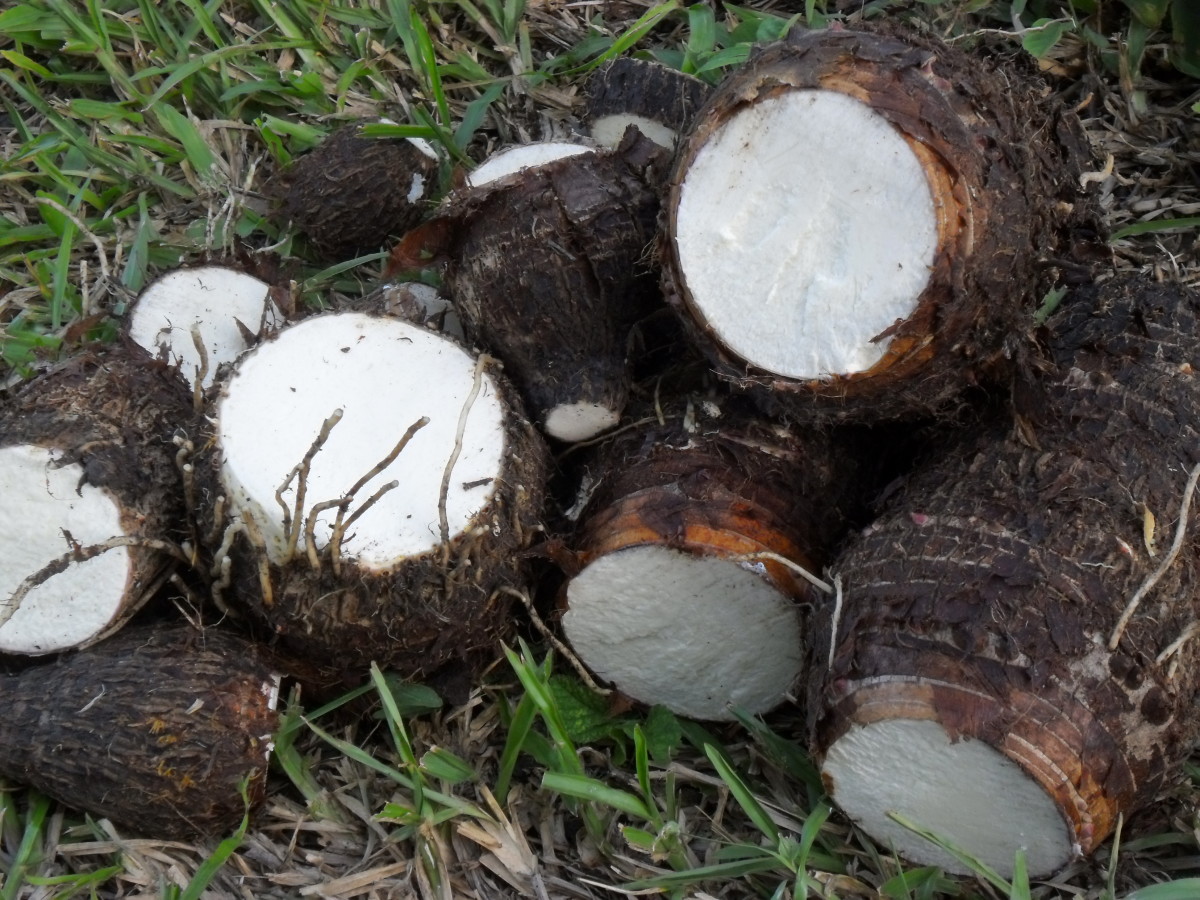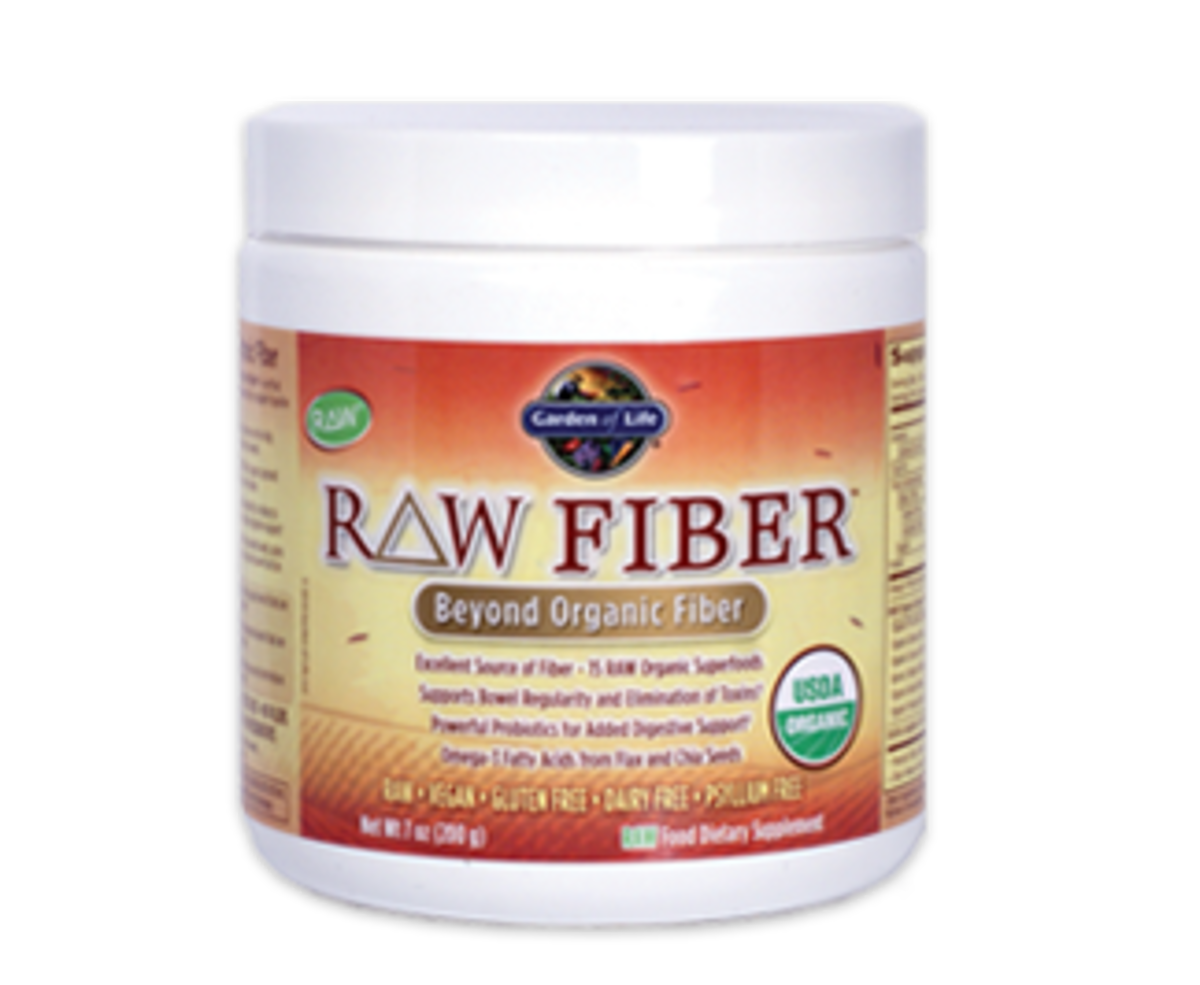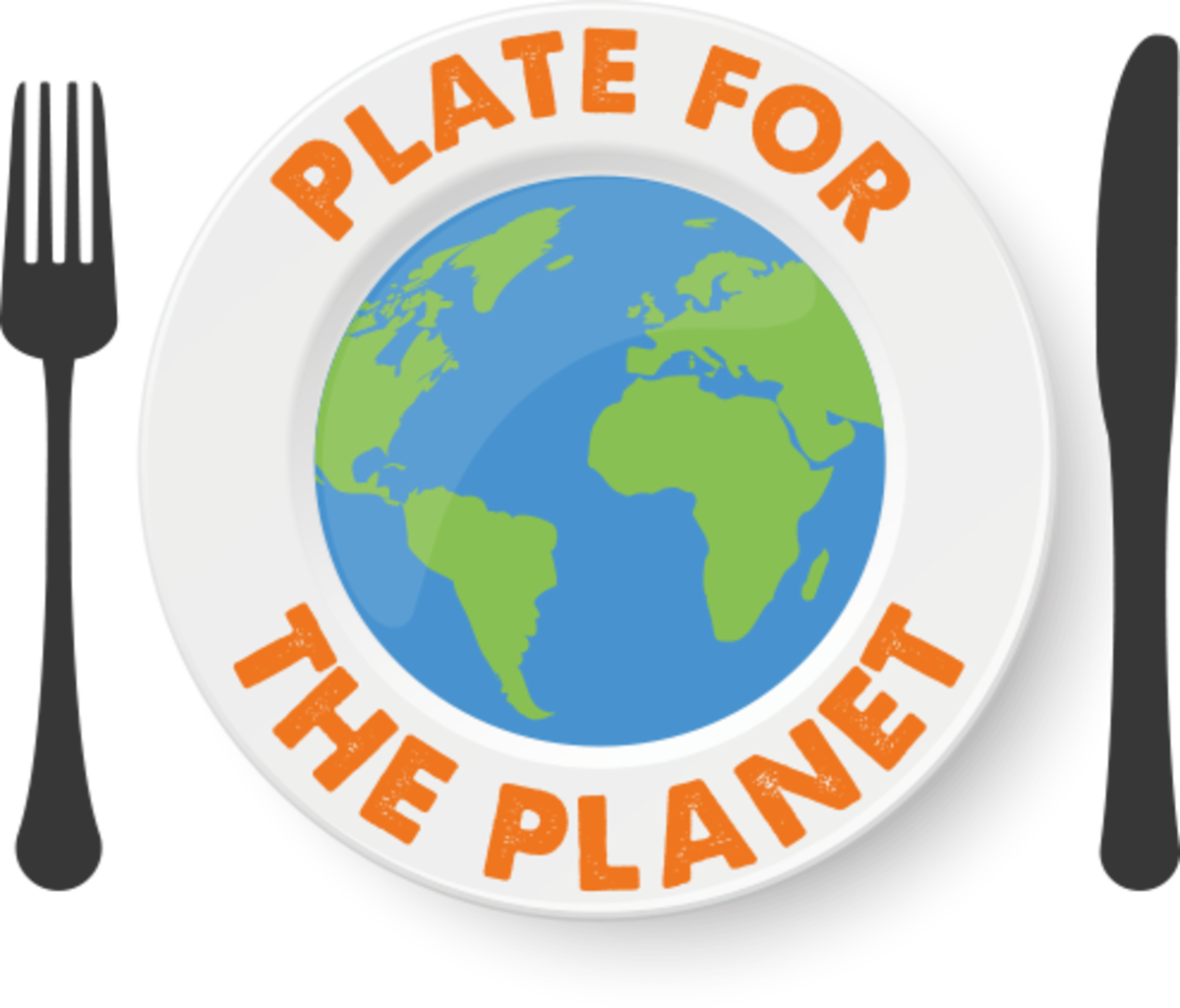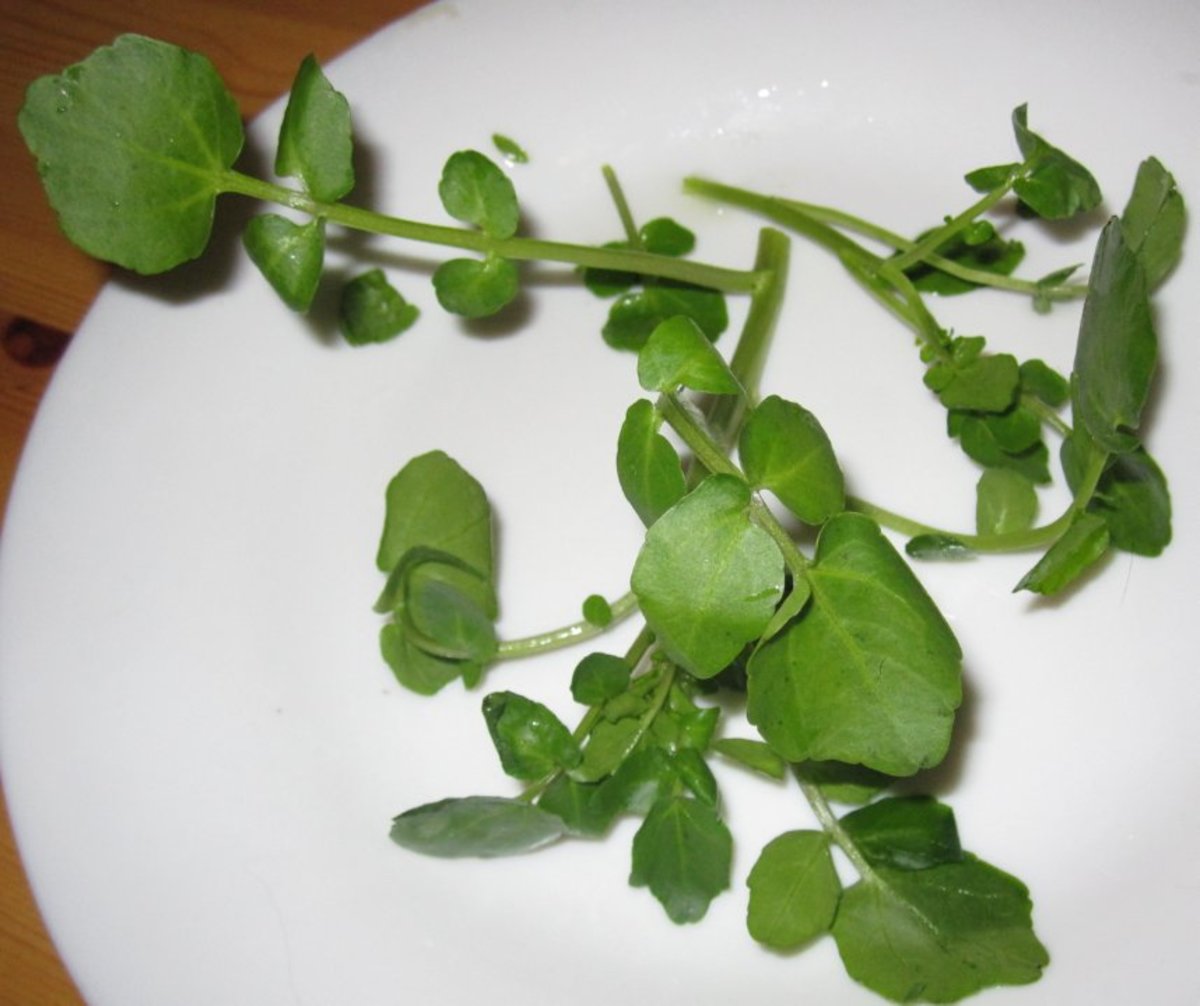Dietary Fiber: How Does it Affect Weight and Disease?
Best fiber choices
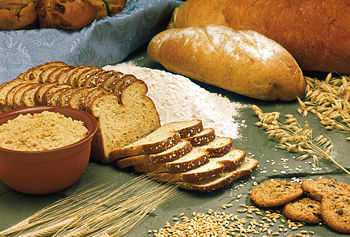

The vital role and health benefits of dietary fiber for our body
Basics of Nutrition
Food is one of the basic human wants. It is what the human body needs. But food intake is also one of the main reasons that give people in our modern society the link to a number of health problems and disorders. The reason is generally people failed to choose the kind of foods that would supply good nutrition in the body. Hence, there is a need for us to understand the principles of good nutrition.
According to James F. Balch M.D. and Phyllis A. Balch, C.N.C. in their book "Prescription for Nutritional Healing", good nutrition is the foundation of good health. Everyone needs the four basic nutrients such as water, carbohydrates, proteins, and fats-- as well as vitamins, minerals, and other micronutrients.
The Wikipedia defines nutrient as either a chemical element or compound used in an organism's metabolism or physiology. Our human body is a complex organism that really needs good maintenance and care in order to have healthy components and parts. Well, some says that our body is like a machine that is to be taken cared of properly. Like ... please handle with care.
So to speak that we need to be wise and smart in choosing foods and to better understand the importance of buying foods in its healthiest forms of these basic nutrients as it would greatly affect our body to function at its optimal level.
Let us know first how important are these basic nutrients in our body.
Basic Nutrients:
* Water. We know that our human body is composed of two-thirds water. Therefore, water is elemental in every function of the body. It gives a medium for chemical reactions to take place, and is the main part of blood. It keeps the body temperature the same by sweating from the skin Water helps blood carry nutrients from the stomach to all parts of the body to keep the body alive. Water also helps the blood carry oxygen from the lungs to the body. Saliva helps animals and people digest food. Water helps make urine. Urine helps remove bad chemicals from the body. The human body is 60–70% water. (Source simplewikipedia.org)
* Carbohydrates supply the body with the energy it needs to function. They are the main source of blood glucose, which is the major fuel for all of the body's cells and the only source of energy for the brain and red blood cells. Except for fiber which cannot be digested, both simple and complex carbohydrates are converted into glucose. (Source: Balch & Balch, Prescription for Nutritional Healing)
* Proteins are large molecules built from small units known as amino acids, commonly affiliated with meat or muscle. They are used for growth and repair, as well as for strengthening the bones. They help to make tissue and cells. They can be found in animals, plants, fungi, bacteria, and also in the human body. For example, muscles contain a lot of proteins. Body builders will eat foods with a lot of protein as an easy way to keep or gain high levels of muscles that is safer than taking steroids. Proteins form an important part in foods like milk, eggs, meats, fish, beans, and nuts. Animals eat proteins to get energy and amino acids. These amino acids are used to build new proteins that are used as enzymes, hormones, or antibodies. Protein is also very healthy and keeps you strong and makes your bones last. Proteins are essential for life. (Source: simplewikipedia.org)
Fat is the most popular of these basic nutrients since everyone is focused on the need to reduce dietary fat-- yet the body does need it; especially during infancy and childhood. Fat is necessary for normal brain development. So throughout life, fat is essential to provide energy and support growth. These are facts!
However, this is where the problem comes in because excessive fat intake is a major cause and key factor of obesity and overweight health issues which are linked to various health problems such as high blood pressure, coronary heart disease, colon cancer, and other health disorders.
* Micronutrients: Vitamins and minerals. Like water, carbohydrates, proteins, and fats vitamins and minerals are also essential to life. They are therefore considered nutrients and are often referred to as micronutrients simply because they are needed in relatively small amounts compared with the four basic nutrients. (Source: Balch & Balch, Prescription for Nutritional Healing)
Understanding the above basic principles we must put emphasis on the application of proper nutrition and proper diet.
Speaking of diet, there is where the importance of choosing foods that contains good nutrients which control our dietary fat intake.

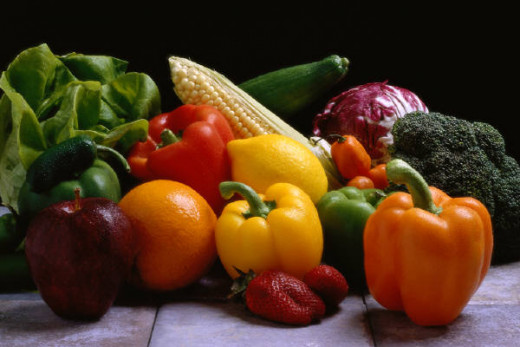
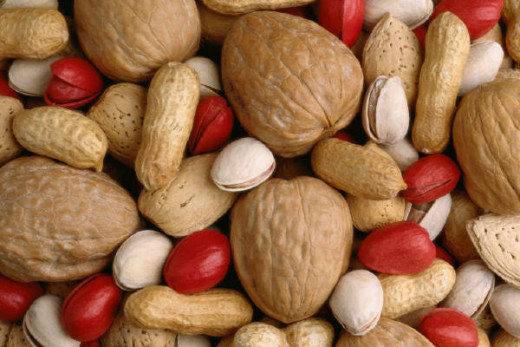
How to determine a healthy weight?
According to the Mayo Clinic, a person's weight is healthy if it falls within the acceptable range for his or her height and age.
Three basic approaches to weight management through nutritional supplementation (Source: Balch & Balch, Prescription for Nutritional Healing)
1. Use of diuretic herbs and nutrition to reduce retention.
2. Use of lipotropic vitamins, which have the ability to reduce cholesterol and fat.
3. Use of natural appetite suppressants.
So, with these basic approaches, you can have your pick, if you want to use nutritional supplementation. There is where fiber comes in.
Facts about Fiber: (Source: Betty Kamen, New Facts about Fiber)
* Health Builder
* Disease Fighter
* Vital Nutrient
Health benefits: (Source: Mayo Clinic http://www.mayoclinic.com/health/nutrition-and-healthy-eating/MY00431) (http://en.wikipedia.org/wiki/Dietary_fiber)
Dietary fiber is found mainly in fruits, vegetables, whole grains, and legumes. It is probably best known for its ability to prevent or relieve constipation. But fiber can provide other health benefits as well, such as lowering your risk of diabetes and heart disease.
Dietary fiber is also known as roughage or bulk, includes all parts of plant foods that your body can't digest or absorb. Unlike other food components such as fats, proteins or carbohydrates--which your body breaks down and absorbs--fiber isn't digested by your body. Therefore, it passes relatively intact through your stomach, small intestine, and colon and out of your body. It might seem like fiber doesn't do much, but is has several important roles in maintaining health.
Two categories of fiber:
* Insoluble fiber. This type of fiber promotes the movement of material through your digestive system and increases stool bulk, so it can be of benefit to those who struggle with constipation or irregular stools. Whole-wheat flour, wheat bran, whole-grain, corn bran, nuts and seeds, potato skins, flax seed, lignans, and many vegetable are good sources of insoluble fiber.
* Soluble fiber. This type of fiber dissolves in water to form a gel-like material. It can help lower blood cholesterol and glucose levels. Soluble fiber is found in oats, rye, chia, legumes (peas, soybeans, and other beans), apples, citrus fruits, carrots, barley, psyllium and other fruits and fruit juices.
The amount of each type of fiber varies in different plant foods. To receive the greatest health benefit, eat a wide variety of high-fiber foods.
How much fiber do we need? (source: http://www.mayoclinic.com/health/nutrition-and-healthy-eating/MY00431)
How much fiber do we need each day? The National Academy of Sciences' Institute of Medicine, which provides science-based advice on matters of medicine and health, gives the following daily recommendations for adults.
Age 50 and younger Age 51 and older
Men 38 grams 30 grams
Women 25 grams 21 grams
Dietary fiber is found in plants. While all plants contain some fiber, plants with high fiber concentrations are generally the most practical source. (Source: http://en.wikipedia.org/wiki/Dietary_fiber)
Fiber-rich plants can be eaten directly. Or alternatively, they can be used to make supplements and fiber-rich processed foods.
Best Fiber choices (source: http://www.mayoclinic.com/health/nutrition-and-healthy-eating/MY00431)
*Grains and whole grain product
*Fruits
*Vegetables
*Beans, peas and other legumes
*Nuts and seeds
Refined or processed foods--such as canned fruits and vegetables and pulp-tree juice, white bread and pasta, and non-whole-grain cereals--are lower in fiber content. The grain-refining process removes the outer coat (bran) from the grain, which lower its fiber content. Similarly, removing the skin from fruits and vegetables decreases their fiber content.
Whole foods rather than fiber supplements are generally better. Fiber supplements--such as Metamucil, Citrucel and Fibercon--don't provide the vitamins, minerals and other beneficial nutrients that high-fiber foods do. However, some people may still need a fiber supplement if dietary changes aren't sufficient, or if they have certain medical conditions such as constipation, diarrhea or irritable bowel syndrome. Always check with your doctor if you feel you need to take fiber supplements.
Mechanism (source: http://en.wikipedia.org/wiki/Dietary_fiber
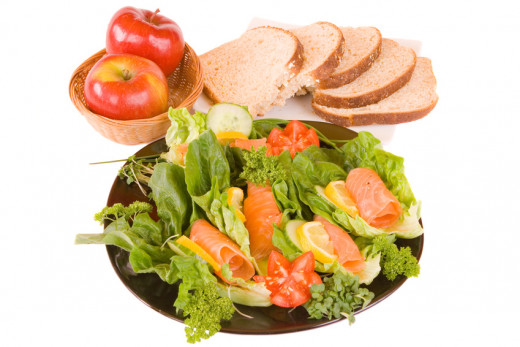
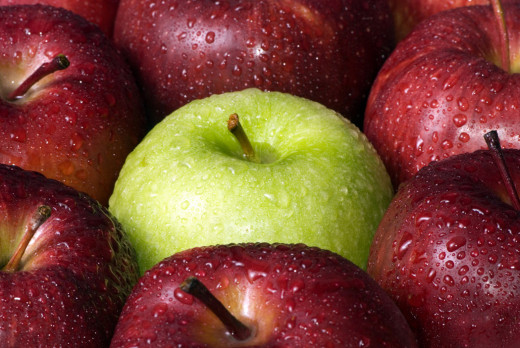

The main action of dietary fiber is to change the nature of the contents of the gastrointestinal tract, and to change how other nutrients and chemicals are absorbed. Soluble fiber binds to bile acids in the small intestine, making them less likely to enter the body; this in turn lowers cholesterol levels in the blood. Soluble fiber also attenuates the absorption of sugar, reduces sugar response after eating, normalizes blood lipid levels and, once fermented in the colon, produces short-chain fatty acids as byproducts with wide-ranging physiological activities (discussion below). Although insoluble fiber is associated with reduced diabetes risk, the mechanism by which this occurs is unknown.
Not yet formally proposed as an essential macronutrient, dietary fiber is nevertheless regarded as important for the diet, with regulatory authorities in many developed countries recommending increases in fiber intake.
Dietary fiber functions & benefits (Source: http://en.wikipedia.org/wiki/Dietary_fiber)
Dietary fiber functions and benefits
Functions
* Adds bulk to your diet, making you feel full faster
* Attracts water and turns to gel during digestion, trapping carbohydrates and slowing absorption of glucose
* Lowers total and LDL cholesterol
* Regulates blood sugar
* Speed the passage of foods through the digestive system
* Balance intestinal pH and stimulates intestinal fermentation production of short-chain fatty acids
Benefits:
* May reduce appetite
* Lowers variance in blood sugar levels
* Reduces risk of heart disease
* May reduce onset risk or symptoms of metabolic syndrome and diabetes
* Facilitates regularity
* Alleviates constipation
* May reduce risk of colorectal cancer
Benefits of a high-fiber diet (Source: Mayor Clinic, http://www.mayoclinic.com/health/nutrition-and-healthy-eating/MY00431)
*Normalizes bowel movements. Dietary fiber increases the weight and size of your stool and softens it. A bulky stool is easier to pass, decreasing your chance of constipation. If you have loose, watery stools, fiber may also help to solidify the stool because it absorbs water and adds bulk to stool. For some, fiber may provide relief from irritable bowel syndrome.
* Helps maintain bowel integrity and health. A high-fiber diet may lower your risk of developing hemorrhoids, and small pouches in your colon (diverticular disease). Some fiber is fermented in the colon. Researchers are looking at how this may play a role in preventing diseases of the colon.
* Lowers blood cholesterol levels. Soluble fiber found in beans, oats, flaxseed and oat bran may help lower total blood cholesterol levels by lowering low-density lipoprotein, or "bad," cholesterol levels. Epidemiologic studies have shown that increased fiber in the diet can reduce blood pressure and inflammation, which is also protective to heart health.
* Helps control blood sugar levels. Fiber, particularly soluble fiber, can slow the absorption of sugar, which for people with diabetes can help improve blood sugar levels. A diet that includes insoluble fiber has been associated with a reduced risk of developing type 2 diabetes.
* Aids in weight loss. High-fiber foods generally require more chewing time, which gives your body time to register when you're no longer hungry, so you're less likely to overeat. Also, a high-fiber diet tends to make feel larger and linger, so you stay full for a greater amount of time. High-fiber diet also tends to be less "energy dense," which means they have fewer calories for the same volume of food.
How dietary fiber affects weight?
According to Betty Kamen in her book "New Facts about fiber" study shows that:
We ingest more food when fiber is removed in the foods we ate. The reason is removing dietary fiber from a natural high-carbohydrate food dumps too much sugar into your blood, causing production of too much insulin. Example in apple juice, it causes weight gain because fiber doesn't exist in apple juice.
Here is the important part: Too much insulin initiates communication between the enzyme (in the fat tissue) and your brain. Insulin is the key to getting glucose into your cells. Glucose supplies your cells with fuel to do its work, to keep you alive, to give you energy. It is your fuel for both immediate and future needs. Without glucose, your body will not move. But when glucose is absorbed beyond certain rate, the ability of your liver to store the glucose (as glycogen) for future use is exceeded, and the surplus is converted to fat.
Refined carbohydrates are responsible for much of our obesity. Is it the high percentage of sugar or the lack of fiber? As the song goes, you can't have one without the other.
Fiber blocks the absorption of fat-- and hence--- calories in the intestines. The more the product is refined, the more fiber is removed, and the less "fat-blocking" occurs.
Is exercise always the answer to weight loss? Is the lack of exercise the cause of our obesity epidemic in the first place? Is it the reason for the overweight problems?
Well, study shows according to Betty Kamen that we are not always overweight because of lack of exercise. Exercise is a factor; exercise is beneficial; exercise helps you to absorb nutrients more efficiently; and yes, you will lose weight if you exercise to the degree that you "use up" more than you "take in." But the amount of movement to accomplish that goal is hard to come by, and exercise is not the only ingredient.
Fiber and satiety (Source: Betty Kamen "New Facts of Fiber")
Study shows that slowed transit through your mouth and stomach (the area of your body where unhurried transit is good) may delay nutrient absorption and produce a sensation of satiety.
I can relate a personal experience about this for example eating whole a piece of apple with skin... during fasting... my husband and I sometimes choose Daniel's fast and apple is one of our favorite fruits. The thing is... after eating half of the apple with skin... I felt full satisfied. I think it is not only the chewing that does it. Though chewing has contributed to it. Eating apples without skin is easier than eating apples with skin. (smile). I even told my husband one time... apples are really good for the body... it is just tiresome to chew... (That was our joke).
Chewing is not the entire explanation according Betty Kamen, the study shows that the water-holding properties of fiber make your gut contents bulkier, and this distension of your stomach and small intestine induces satiety. Another possibility is that fiber changes the pattern of your hormone release, thereby preventing low blood sugar, which contributes to hunger signals.
With these facts from variety of sources about dietary fiber, hopefully you can adopt your own lifestyle of eating rich-fiber foods (especially raw foods). That is the best way to slow your eating pace. It might be difficult though especially with the fast-lane-world where is everything is high-tech food preparation. Who is the expert to say what form of fiber is best? But we know already the facts... it is for us to decide.
Concentrated fiber preparations are effective for weight loss provided the closes consumed are large enough. The availability of fiber supplements reflect transitions that have come about because we are learning how to link nutrition and health. One thing is certain: The higher the percentage of fiber in your diet, the lower the tape-measure reading around your waist. (Source: New Facts about Fiber, Betty Kamen)
Another fact, the relationship between the stimulation of insulin and weight gain has been confirmed time and again. Appetite or subjective feelings of hunger are connected with low blood glucose levels. Since dietary fiber helps to "quiet" insulin reactions, which in turn stabilizes glucose levels, consuming dietary fiber is a metabolic advantage in terms of weight stability. (Source: New Facts about Fiber, Betty Kamen)
I have attached here the Mayo Clinic healthy weight pyramid, it was very useful to me... it might be useful to you to maintain your weight and good health too.
Sources:
http://en.wikipedia.org/wiki/Dietary_fiber
http://www.mayoclinic.com/health/nutrition-and-healthy-eating/MY00431)
Books:
· Prescription for Nutritional Healing by James F. Balch, M.D. and Phyllis A. Balch, C.N.C.
· New Facts About Fiber by Betty Kamen, Ph.D.

